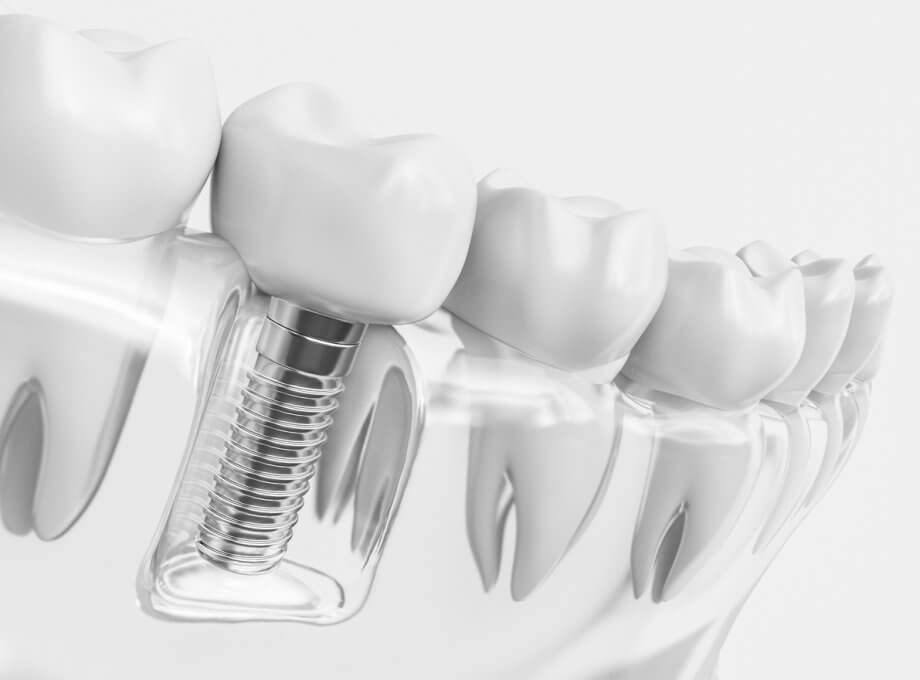Have you ever had a nightmare or dream where you were missing some or all of your teeth? What would you do if you were ever to lose a tooth in real life? One of the best solutions would be to receive a dental implant. Dental implants are a dental procedure where a dentist or oral surgeon surgically places an artificial tooth that is integrated and fused in the jawbone. This is one of the best long-term options for teeth replacement and restoration.
Just a decade ago if you lost a tooth your only options for treatment of a lost tooth would be a fixed bridge or dentures. The problem with fixed bridges long term they primarily rely on the integrity of the adjacent healthy teeth to be the anchors. Inherently overtime these teeth can be compromised. Your last option to restore your teeth would be removable dentures. The thought of dentures to most would make you cringe. Dentures unfortunately are not a full-proof solution from time to time they slip, fall out, or make an irritating clicking sound when you speak.
Dental implants are made of titanium and are fused to your jawbone, serving as the foundation for your missing tooth. The major disadvantage with fixed bridges is they need to be replaced two or three times during a lifetime.

Benefits to Dental Implants
- Aesthetics – Dental implants are superior to bridges and dentures for a few reasons overall look, feel, and function.
- Preserve Healthy Teeth – Because dental implants do not use anchors or the teeth next to them they end up preserving the integrity of your smile 🙂
- Reliability – Unlike fixed bridges you won’t have to worry about replacing them a few times throughout your life, or misplacing them like dentures.
- Confidence – No slipping, clicking, or even worse saving you the embarrassment if they ever were to fall out!
What’s the process and what should I expect as a patient?
Dental implant surgery is not a quick fix. It’s a process that will involve:
- Full dental exam – X rays, cleanings, and dental molds
- Treatment plan – Dr. Hurt and the team will work closely with you to create a specific treatment plan. Before your surgery, we will comprehensively evaluate the number of healthy teeth. The number of teeth that need to be restored or replaced, along with the health of your gums and the condition of your jawbone. After the procedure, you will be instructed on how to care for your new dental implants.
- Procedure – Dental implants can involve several surgical procedures which can take anywhere from three to nine months. It is a long journey but most of the time will be allotted for the recovery process and allowing your new bone to graph or grow to your jaw. Once fully healed an abutment is placed followed by a crown or dental prosthesis.
- Pain control – During your treatment you will receive a form of anesthesia or sedative. You will also want to make sure to have a friend or family member pick you up from our office because you will be groggy.
